10 signs of Anxiety in teens
- queenofherlife01
- Jan 23
- 8 min read
10 Signs of Anxiety Disorder in Teens
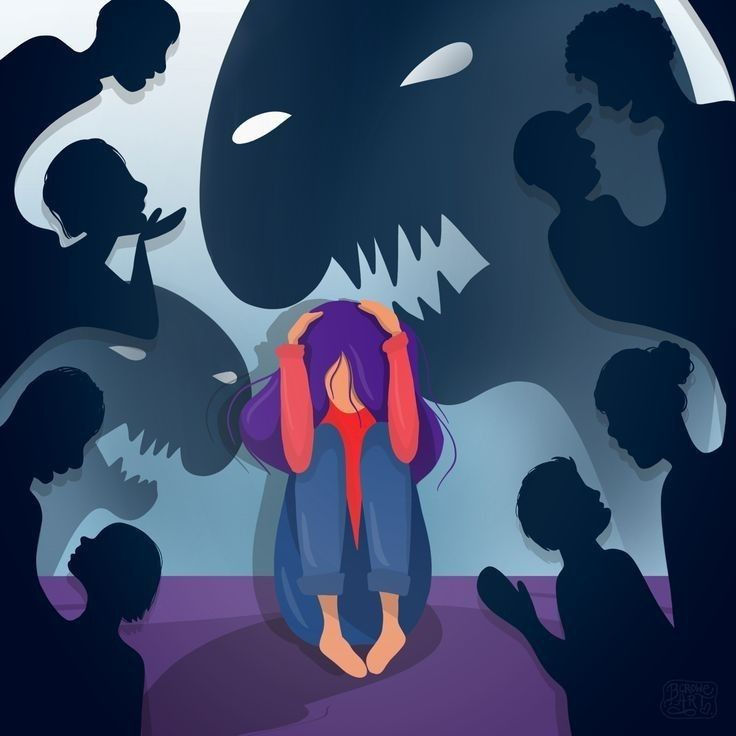
Overview of Teen Anxiety
The teenage years are a period of immense change, filled with new experiences and challenges. While this can be an exciting time, it can also bring about feelings of anxiety for some teens. Anxiety in youth is more than just occasional worry; it can significantly impact their daily lives and overall performance.
The Teenage Years: A Time of Change
The teenage years are a time of significant transformation, filled with new experiences and challenges. While this period can be exciting, it can also lead to feelings of anxiety for some adolescents.
Understanding Anxiety in Teens
Anxiety in young people is more than just occasional worry; it can greatly impact their daily lives and overall performance.
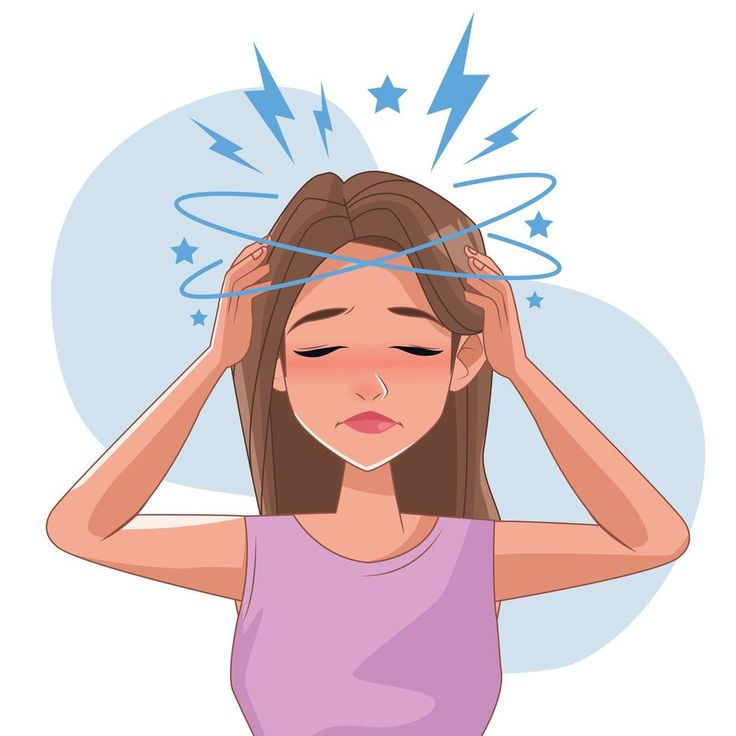
Teens might struggle with various forms of anxiety, including social anxiety, which can make everyday interactions feel overwhelming. Understanding the 10 signs of anxiety disorder in teens helps in recognizing the struggles they may face. From avoiding social situations to experiencing physical symptoms like nausea or rapid heartbeat, these signs are important to note. 31.9% of teens are estimated to have an anxiety disorder
Understanding Anxiety in Teens
Teens often face different types of anxiety, including:
Social anxiety can make everyday interactions feel overwhelming.
Recognizing the signs of anxiety disorder in teens is crucial. Here are 10 common signs to watch for:
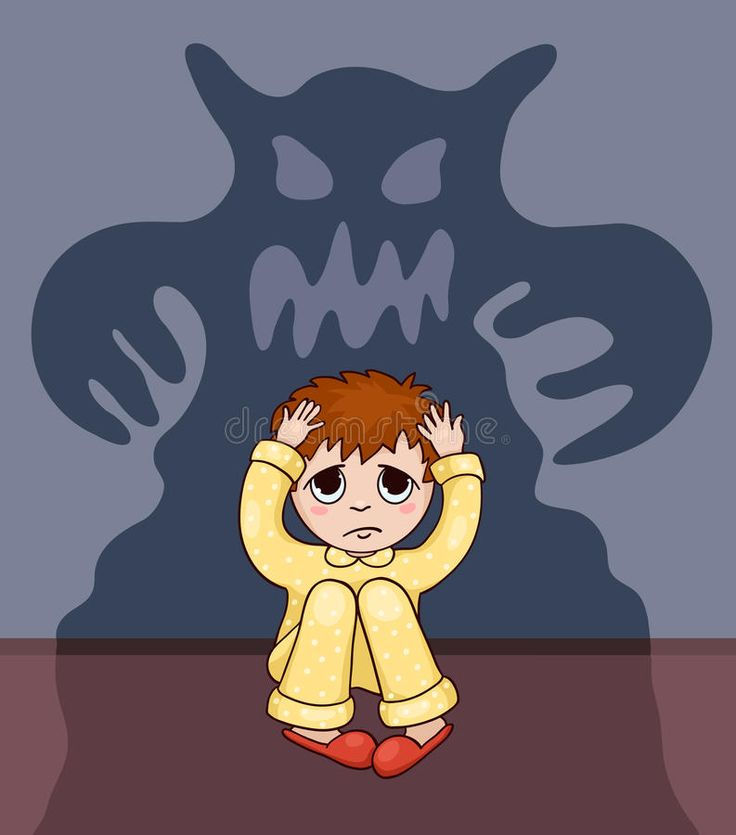
Avoiding social situations
Experiencing physical symptoms such as nausea
Having a rapid heartbeat
Feeling excessively worried or fearful
Struggling with concentration
Having trouble sleeping
Feeling restless or on edge
Experiencing irritability
Withdrawing from friends and family
Seeking reassurance frequently
It's estimated that 31.9% of teens have an anxiety disorder, making it important to be aware of these signs.
8.3% of teens with an anxiety disorder report severe impairment.
Anxiety disorders are higher for teen girls (38%) than boys (26.1%)
50% of all lifetime mental illnesses begin by age 14, and 75% by age 24.
1 in 6 U.S. youth aged 6-17 (16.7%) experience a mental health disorder each year.
Only 36.9% of people with an anxiety disorder receive treatment.
70% of students report negative impacts on their mental health due to academic pressures
According to the National Institute of Mental Health (NIMH), 9.1% of teens between 13 and 1.
Maybe you or your friend have a mental health disorder.
Steering Clear of Social Gatherings
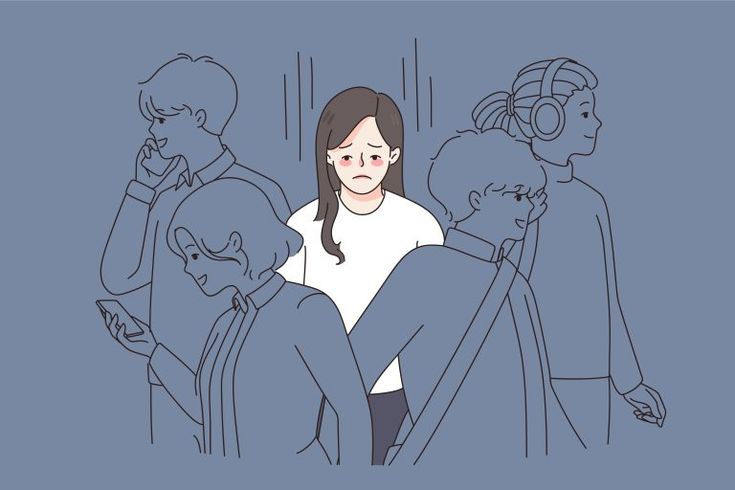
Many teens grapple with social anxiety, leading them to avoid social gatherings. This isn't just about feeling shy; it often stems from a deeper fear of how they are perceived. Dr. Bubrick highlights that some teenagers experience an overwhelming worry about how they are seen, contributing to significant social anxiety. This fear can prevent them from engaging in group activities or attending events that others might find enjoyable.
Anxiety Over Being Judged
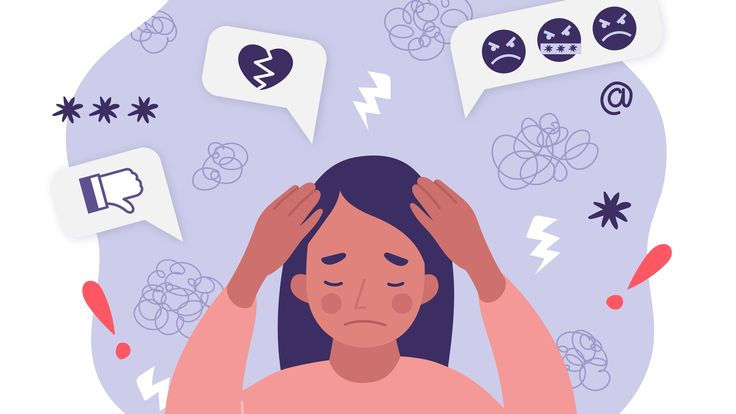
The fear of being judged is a powerful sign of anxiety disorder in teens. This constant worry about others' opinions can make it hard for them to speak up or participate in group discussions.
They might second-guess their thoughts, fearing criticism or disapproval. This self-doubt often extends to their behavior, making them overly cautious about how they act or what they say. The fear of judgment can become so intense that it interferes with their ability to engage in everyday activities, from answering questions in class to socializing with friends. These teens may feel like they are always under scrutiny, which can be incredibly isolating.
Physical Manifestations
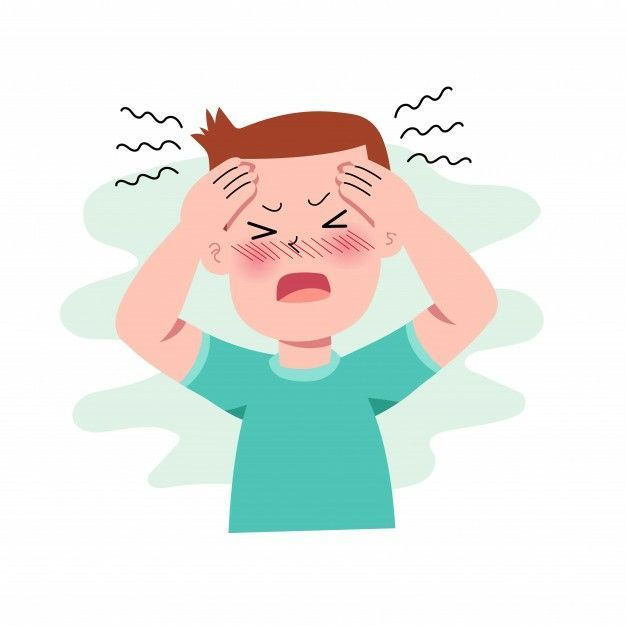
Teens experiencing anxiety often face physical symptoms that add another layer of distress. These can include nausea, excessive sweating, trembling, or a rapid heartbeat when confronted with social situations.
Imagine feeling your heart race uncontrollably just at the thought of speaking in front of others or breaking out in a sweat during a simple conversation. These physical responses are not merely inconvenient; they can be downright overwhelming, making it even harder to cope with everyday activities. Such reactions highlight how anxiety deeply intertwines with both the mind and body, creating a challenging experience for teens. Understanding these signs can help in offering the support they need.
Persistent Worrying

Teens experiencing anxiety often find themselves trapped in a cycle of persistent worrying. This constant worry isn't just about occasional stress; it’s a never-ending loop of thoughts that can feel exhausting. They might replay conversations or situations in their minds, analyzing every detail and fearing they made a mistake. This level of overthinking can make even simple interactions feel daunting. Persistent worrying can take a toll on their ability to concentrate, impacting their academic performance and overall well-being. It can also affect their sleep, leading to restless nights as they lie awake, consumed by their thoughts. This relentless anxiety can create a feeling of being perpetually on edge, making it difficult to relax and enjoy life.
If you notice your friend or child constantly blabbering and worrying about a simple situation, don't take it lightly. It might be social anxiety symptoms.
Reduced Self-Esteem
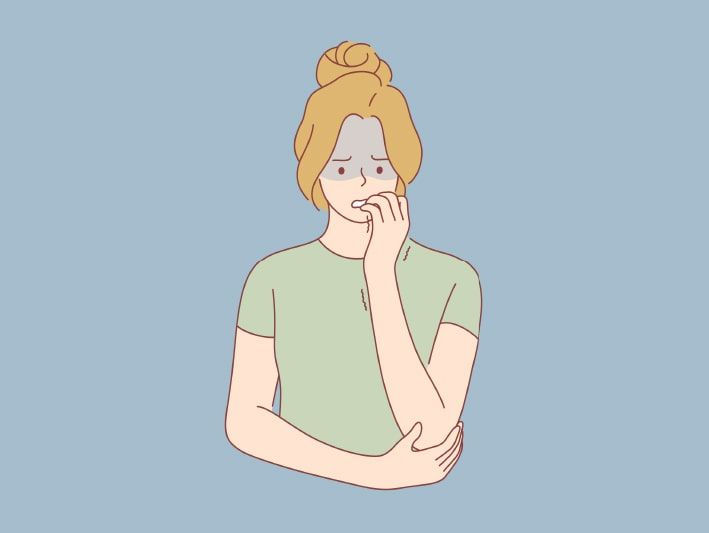
Anxiety can significantly impact a teen's self-esteem, often leading them to feel less valuable than their peers. They may constantly criticize themselves, feeling inadequate in various aspects of their lives. This negative self-talk becomes a persistent background noise, convincing them that they are not good enough or that they are failing in some way. Such thoughts can erode their confidence, making it challenging to step out of their comfort zone.
The feeling of being "less than" can make social interactions particularly tough, as they may believe others see them in the same negative light. This distorted self-view can prevent them from participating in activities they might otherwise enjoy. Over time, these negative beliefs can become deeply ingrained, further isolating them from their peers and potential support networks.
The constant comparison to others can also be a significant issue. Teens with anxiety might feel like everyone else is more competent, more attractive, or more popular. This ongoing comparison can intensify their feelings of inadequacy, creating a vicious cycle of self-doubt. As their self-esteem plummets, they may find it increasingly difficult to engage with others, fearing rejection or judgment. These feelings can be incredibly isolating, making it hard for them to find joy in everyday experiences.
Challenges in Forming Friendships

Forming new friendships can be particularly challenging for teens dealing with anxiety. They might struggle to reach out to others, fearing rejection or judgment. This can lead to isolating behaviors, where they withdraw from social opportunities. Dr. Bubrick notes that this reluctance can sometimes be tied to deeper anxieties about making mistakes or experiencing panic attacks in social settings. As a result, they may miss out on the joy and support that friendships can offer.
These teens might hesitate to join group activities, even when they want to be part of the fun. The fear of being judged or saying the wrong thing can be paralyzing, making it easier to stay on the sidelines. Over time, this avoidance can make it even harder for them to break out of their shell.
Additionally, teens with anxiety may struggle with starting conversations or keeping them going. They might worry about running out of things to say or appearing awkward. This fear can prevent them from initiating interactions, leading to missed opportunities to connect with peers.
Moreover, they might feel like they don’t fit in or that others don’t understand them, which can add another layer of difficulty. This sense of being different or out of place can be incredibly isolating, making it even more challenging to form lasting friendships.
Hesitation to Engage in Classroom Activities
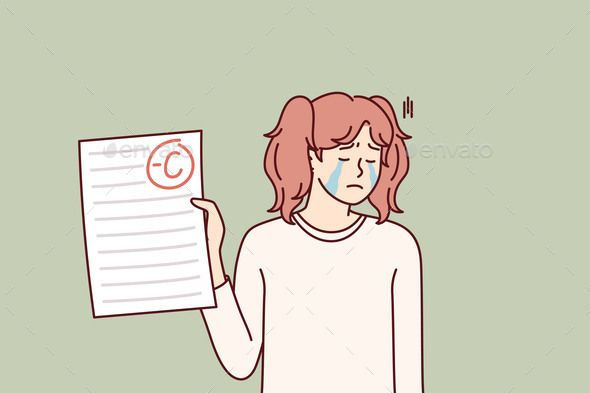
Anxiety can often show up in the classroom as a reluctance to participate. Teens may avoid raising their hands, even when they know the answer, out of fear of being judged or making a mistake in front of their classmates. Presentations can become a source of dread, causing sleepless nights and overwhelming stress. This avoidance is not due to a lack of interest or knowledge but stems from a deeper fear of embarrassment or criticism.
Such fears can make the classroom feel like an intimidating space rather than a supportive learning environment. Even group projects can be challenging, as teens with anxiety might struggle to contribute, fearing their ideas won’t be valued or accepted. This hesitation can affect their academic performance and overall school experience, making them feel disconnected from their peers and the learning process.
Reliance on Comforting Behaviors

Teens dealing with anxiety often develop certain comforting behaviors to help them manage their feelings. For instance, they might use headphones to create a barrier between themselves and the outside world, finding solace in music or podcasts. Texting instead of calling is another common habit; it allows them to communicate without the immediate pressure of a real-time conversation. These behaviors provide a temporary sense of security, giving teens a way to cope in social situations that might otherwise feel unbearable.
However, while these habits can be helpful in the short term, they can also contribute to further avoidance. For example, constantly relying on headphones to shut out the world can prevent teens from engaging in spontaneous interactions that might help them build social skills. Similarly, preferring text over phone calls can limit their ability to practice verbal communication, which is essential for forming deeper connections.
These comforting behaviors are not inherently negative; they are adaptive strategies that teens use to navigate a world that feels overwhelming. Yet, it's important to recognize when these behaviors start to interfere with their ability to grow and engage with others. Offering support and understanding can help teens find a balance, encouraging them to step out of their comfort zones while still feeling safe.
Navigating Social Situations with Anxiety
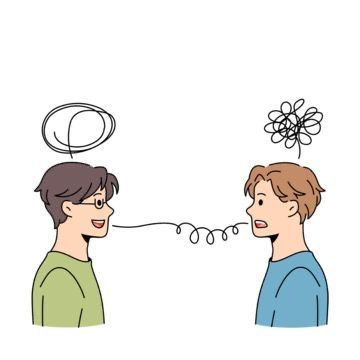
Navigating social situations can be particularly challenging for teens dealing with anxiety. Simple interactions, like starting a conversation or joining a group, can feel like climbing a mountain. The fear of being judged or making a mistake often looms large, causing them to overthink every word and action. These feelings can make it difficult to enjoy activities that others find fun, such as parties or social events.
Teens might use various strategies to cope, such as sticking close to a trusted friend or avoiding eye contact. These tactics can provide a temporary sense of security but may also prevent them from fully engaging with others. It's important to recognize that these behaviors are not signs of disinterest but rather attempts to manage overwhelming feelings.
Understanding the unique challenges, they face can help in offering compassionate support.
Encouraging teens to take small steps, like greeting a classmate or participating in a club, can help them build confidence. Creating an accepting environment where they feel safe to express themselves can make a significant difference in their ability to navigate social situations. Empathy and patience are key in helping them find their way through these challenges.
Shying Away from Eye Contact

For many teens with anxiety, maintaining eye contact can feel incredibly daunting. This isn’t merely a sign of shyness; it often signals a deeper fear of being judged or misunderstood. Avoiding eye contact can serve as a protective mechanism, helping them feel less exposed in social interactions. However, this behavior can make communication challenging, creating a sense of disconnection from those around them.
Teens might look away or focus on a nearby object instead of meeting someone’s gaze, which can be misinterpreted as disinterest or disengagement. Understanding that this avoidance is a coping strategy rather than a lack of respect or attention is crucial.
By recognizing this sign, we can approach these teens with greater empathy, fostering a more supportive environment where they feel seen and valued. Encouraging gentle eye contact through positive reinforcement can help them gradually become more comfortable, promoting better social interactions over time.
In Closing

Addressing anxiety in teens requires understanding, patience, and compassion. It's crucial to recognize that their feelings are real and significant. They may feel like they're constantly under a microscope, with every action being judged. This intense scrutiny can be incredibly isolating. Offering a listening ear and validating their experiences can make a world of difference.
Creating safe spaces where teens feel comfortable sharing their struggles is essential. Simple acts of kindness, like checking in on them or encouraging small steps towards social engagement, can help them feel supported. It's important to remember that anxiety isn't a choice, but with the right support, teens can learn to manage their feelings and build confidence.
By acknowledging the challenges they face, we can work together to create an environment that fosters growth and resilience. Empathy, understanding, and consistent support can empower teens to navigate their anxiety, helping them to feel more connected and understood.



Comments